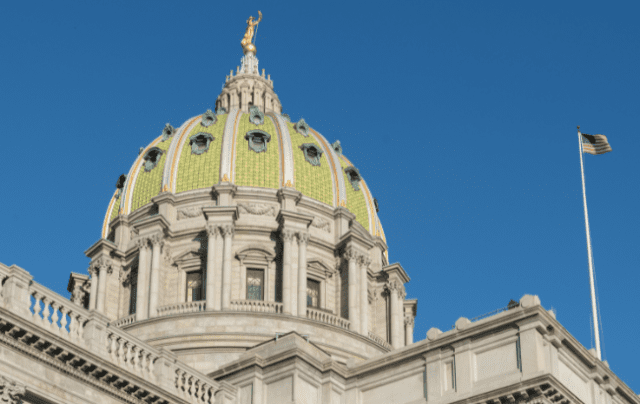New Pennsylvania fee to cost alcohol producers up to $17m
By Miona MadsenThe Pennsylvania Liquor Control Board (PLCB) has approved a new alcohol fee, which has been opposed by many in the spirits industry.

The vote for a new bailment warehousing fee took place on Wednesday 16 July, just two days after the proposal was made public.
The fee on wine and spirits is likely to result in higher prices at state stores, restaurants, bars, taverns, and grocery stores.
Now, the Pennsylvania Wine and Spirits Association (PWSA), the Distilled Spirits Council of the United States (Discus), the American Distilled Spirits Alliance (ADSA), and the Wine Institute (WI) have expressed strong opposition to the PLCB’s decision to approve the fee.
The coalition stated: “As representatives of the world’s wine and spirits producers, we strongly opposed this new fee that will undoubtedly increase prices for Pennsylvania consumers. Further, this fee was imposed with barely any notice and no opportunity for producers to discuss its consequences, ask questions or propose alternatives.
“Now is not the time to impose new fees on wine and spirits in Pennsylvania. PLCB’s business partners and the public deserve a transparent accounting of agency operations before facing new fees that will raise consumer prices on alcohol.”
The PLCB’s vote introduced a bailment fee of US$1 per case on all spirits and wine sold through state stores, effective 1 January 2026.
According to an economic analysis conducted by the coalition, the change is expected to cost alcohol producers between US$15 million and US$17m annually. The fee is assessed per shipping package, meaning that a four-pack of ready-to-drink (RTD) cocktails will incur the same fee as a 12-bottle case of wine or spirits.
The coalition added: “There has never been a more challenging time to make and sell spirits and wine. Competition from hemp and cannabis is fierce, tariffs have increased the price of imported alcohol and sharply reduced revenue from US exports, and global alcohol consumption is down. This new fee is yet another hit to the cost of doing business in Pennsylvania.”
Motive behind the fee
The coalition says PLCB’s price increases are primarily due to rising operational costs rather than an increase in the prices of spirits and wines.
According to the PLCB’s latest unaudited financial statements, net profits have decreased by nearly US$70m. Alcohol tax collections are down by an estimated US$2m in the first 10 months of this fiscal year, which ended in April.
The coalition advised: “To lessen the burden on Pennsylvania consumers and our members doing business there, the PLCB should start by more closely examining expenses before imposing a new fee.
“For example, over the past two years alone, the PLCB spent more than US$180m on a technology system that continues to be riddled with inefficiencies. Instead of addressing current shortfalls, the PLCB created this new fee on distilleries and wineries and, ultimately, on Pennsylvania consumers.”
The PLCB says its bailment fee follows the practices of other control states. However, the coalition claims only five other control states impose such fees.
Unlike the other states, Pennsylvania combines its fee with additional penalties imposed by the PLCB related to warehouse inventory controls. Furthermore, other states are said to utilise a ‘straightforward and transparent’ formula to apply a consistent markup on all alcohol, ensuring that prices and discounts offered to control states are passed on to consumers.
In contrast, the PLCB is permitted to set flexible pricing, meaning it can adjust the markup on each product.
The coalition concluded: “While the PLCB states this increase is to be more in line with other control states, the big difference with Pennsylvania is how the shelf price consumers pay is determined.
“The PLCB establishes retail prices based entirely on the skyrocketing costs of doing business without legislative oversight. With the implementation of this new fee, Pennsylvania will have both a flexible markup and a bailment fee, harming wine and spirit consumers and producers alike.”
Related news
WHO calls for tax hikes as alcohol becomes ‘too affordable’
